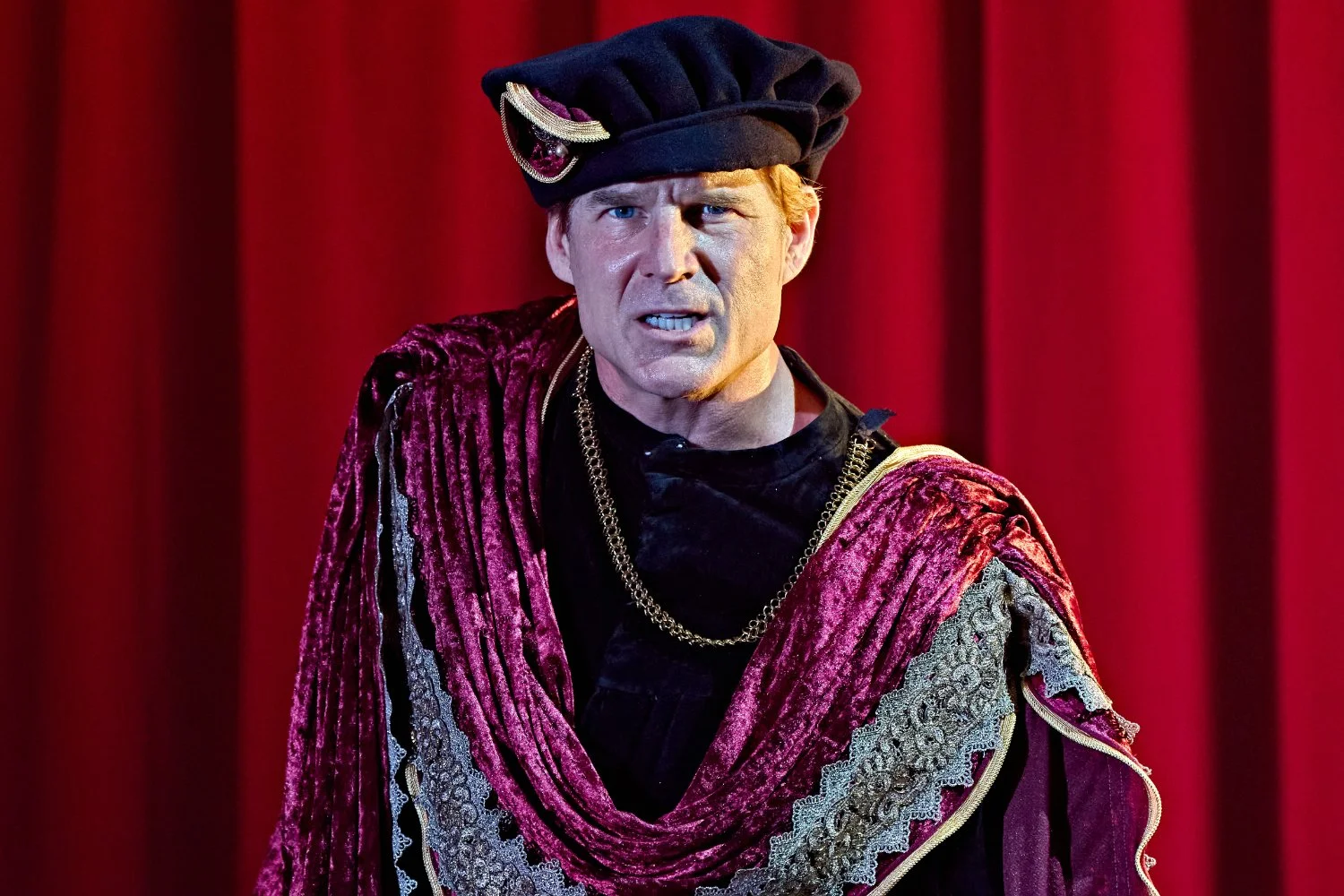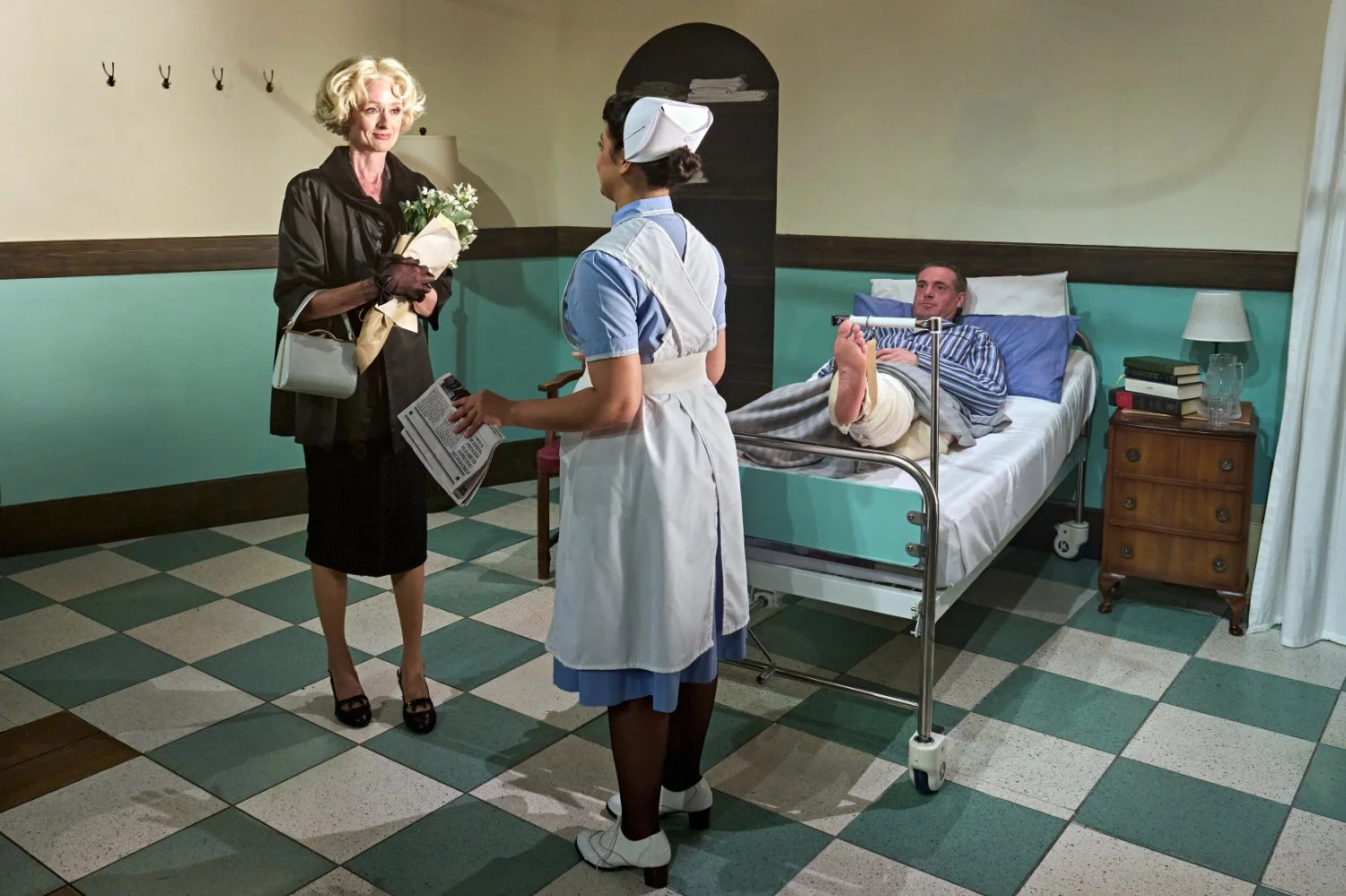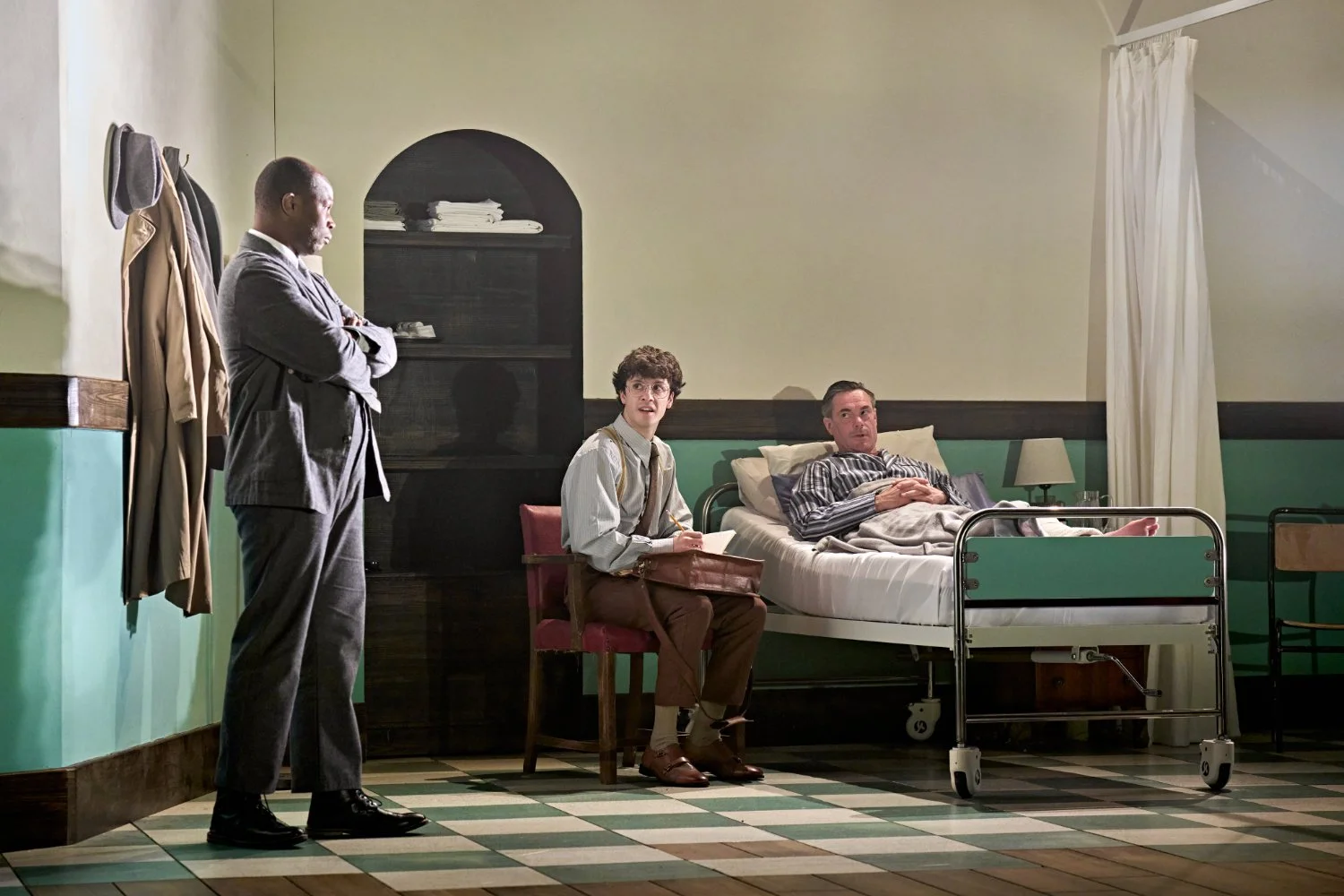Richard III has long been believed a seedy, greedy, child-killing tyrant, but are all the allegations true? Examine the facts for yourself in this stage adaptation of Josephine Tey's classic novel
In my early teens, I became obsessed with The Wars of the Roses, thanks to Shakespeare and my English teacher, who took us to Stratford-upon-Avon to see the Royal Shakespeare Company's one-day play extravaganza that condensed the Bard’s Henry VI triptych and Richard III into one. There was no flinching from bloody battles and executions, no callous imprisonment of women and children. Richard, Duke of Gloucester and later King Richard III, was brilliantly played by Ian Holm as rather more nuanced than an arch villain, thanks to the way Shakespeare shows the King's brotherly love and valour in battle in Henry VI (a prequel series to Richard III).
Soon after this, I came across Josephine Tey’s novel The Daughter of Time, in which she, a renowned crime novelist, wrote as an apologist for Richard. The book features her usual detective character Alan Grant, who's bed-bound in hospital with injuries inflicted by a villain he’d tackled. To help him while away the endless hours of confinement, a friend gives him some history books and he becomes fascinated by the inconsistencies in stories of Richard III’s apparent villainy.
Now American writer and playwright M Kilburg Reedy has adapted Tey’s novel for the stage. She started writing it in 2011, she says in an interview in the programme, partly as her response to the then current memoirs of Dick Cheney and Donald Rumsfeld, promoting the idea that the Iraq War was justified because Iraq had weapons of mass destruction, despite testimony to the contrary.
In director Jenny Eastop's absorbing production, the set (courtesy of Bob Sterrett) is cleverly and vividly conceived to take both characters and audience to a hospital ward; the intimacy of a table at The Ivy; and The Old Vic stage, where thespian Nigel Templeton (a convincing Noah Huntley) is delivering his Richard III. Rob Pomfret makes a perfect detective, frustrated by his inactivity, both physically and mentally, but relieved to find a way to escape in history and utilise his incisive detective mind in an intriguing new way.
His nursing team (in period 1950s starched uniforms) interact empathetically, bringing him more historical volumes and sharing their own prejudices against the King as villainous child killer, though most are swayed when Grant shows them the sympathetic physiognomy in his copy of the famous portrait of Richard III from the National Gallery.
Marta Hallard, friend (and more) to Grant, is the glamorous actor playing Elizabeth of York. Not only was Elizabeth wife and Queen to Henry VII, she was the mother of the two boys – heirs to the throne – who disappeared following the death of their father, in a mystery known as the Princes in the Tower. Rachel Pickup’s carefully calibrated characterisation of Marta is all elegant beauty, with real concern for her bedridden bestie. Sanya Adegbola as a fellow cop is another regular visitor.
Finally Brent Carradine, a young American researcher from the British Museum, joins the action as a breath of fresh air, just as he does in the novel. Harrison Sharpe earned laughter and applause, bringing joie de vivre along with his knowledge that looks to swing the verdict in favour of Richard. For anyone who has read Tey’s novel – and for those who haven't yet – this is a must-see. The Daughter of Time is such a clever reimagining of this much-loved book - Milburg Reedy has added a dimension that brings Tey’s clever convincing arguments to vivid three-dimensional life.
By Judi Herman
Photos by Manuel Harlan
The Daughter of Time runs until Saturday 13 Spetmber. 7.30pm, 2.30pm (Wed only), 3pm (Sat & Sun only). £20-£60. Charing Cross Theatre, WC2N 6NL. charingcrosstheatre.co.uk




